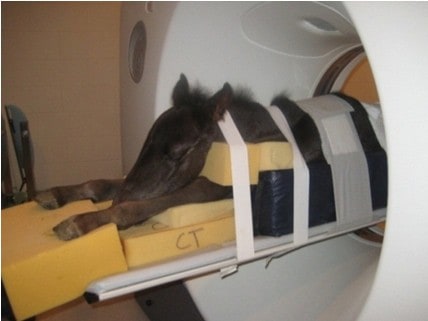
Stress’ Impact on Equine Gene Activation
Chronic stress could lead to an increased susceptibility to disease due to the activation of certain genes.
Horse breeding from planning through foal care

Chronic stress could lead to an increased susceptibility to disease due to the activation of certain genes.

Dr. Wendy Vaala shares important information about proper internal parasite control and deworming for suckling and weanling foals. She especially emphasizes the importance of treating roundworm infection.

Low serum zinc levels were associated with an impaired immune function in yearlings and 2-year-olds.

Equine immunodeficiencies can be challenging to diagnose, and even more difficult–or impossible–to manage.

The filly, born July 27, is the first Przewalski’s Horse to be bred using artificial insemination.
A jury found the AQHA’s rule forbidding the registration of cloned horses is a violation of antitrust laws.

Researchers believe the fetal consciousness transition could have a significant impact on neonatal health.

The field protocol is designed to be low-risk, efficient, economical, and effective in identifying lesions.
A lawsuit challenging AQHA rules preventing registration of cloned horses heads to court this week.
Confirmed diseases include contagious equine metritis, strangles, EHV, influenza, and more.

A 4-year-old California mare has tested positive for neuropathogenic equine herpesvirus-1 (EHV-1).

Veterinarians are taking a page from human medicine books by using CT to evaluate pulmonary disease in foals.

Lactating mares on good quality pasture didn’t need grain to maintain their weight or their foals’ growth.

One embryo biopsy technique yields accurate results for sex determination without serious threat to survival.
Horses residing on two English premises have tested positive for equine herpesvirus-1.

Researchers are investigating how young horse management practices can impact osteochondral lesions.
Stay on top of the most recent Horse Health news with
"*" indicates required fields